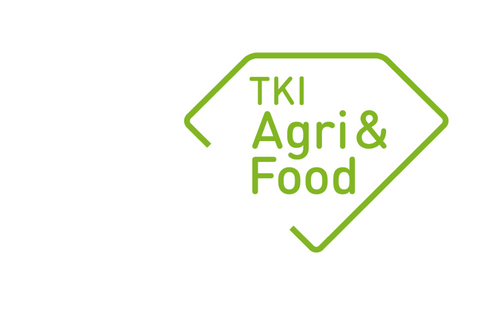Projecttitel: Biobased plasticizers from agricultural (side) streams
Projectnummer: AF-18004
Missie: Kringlooplandbouw
MMIP: Hergebruik zij- en reststromen (A3)
Looptijd: 2019 – 2022
Budget publiek: € 510.000
Budget privaat: € 510.000
Projectleider: Daan van Es
Betrokken partijen: ADM, BioDetection Systems, Evonik Performance Materials, Wageningen University & Research
Furan dicarboxylic acid (FDCA) can be derived from various agricultural resources, including both first and second generation sugars. FDCA is considered as one of the most promising biobased building blocks. It serves e.g. as building block to produce PEF: Polyethylene Furanoate; a biobased polymer with huge potential to supplement or substitute fossil based PET in many applications. FDCA is on the brink of commercialisation since both Synvina (Avantium/BASF) and ADM/Dupont have established pilot plants and have plans for commercial scale production. Defining and establishing other major market outlets for FDCA is highly relevant. WFBR supports various organisations in developing technology for furan- and FDCA based products in different value chains. Due to the significant volumes FDCA based plasticisers are an attractive market for biobased products.
Furthermore, FDCA based plasticisers have the potential to replace petrochemical based phthalate plasticisers which are under increasing regulatory pressure due to real or perceived negative effects on human health and the environment. Plasticisers in general are useful polymer modifiers that increase the application window of a broad range of materials. Polyvinyl chloride (PVC) is the largest application for phthalate plasticisers, resulting in various flexible industrial, as well as consumer products such as blood bags, vinyl flooring, conveyor belts, and truck tarpaulins. Furthermore, these plasticisers are also used in non-PVC applications such as adhesives, sealants and cosmetics. Previous feasibility studies have shown that FDCA based plasticisers are highly promising alternatives for phthalates in PVC. Nevertheless, some properties of FDCA based plasticisers are not yet fully understood, which needs to be addressed in order for these materials to reach commercialisation.
The overall aim of this project and the consortium partners will hence be to generate generic knowledge to understand and improve the overall performance of FDCA based plasticisers.
Links:
Deel dit bericht

